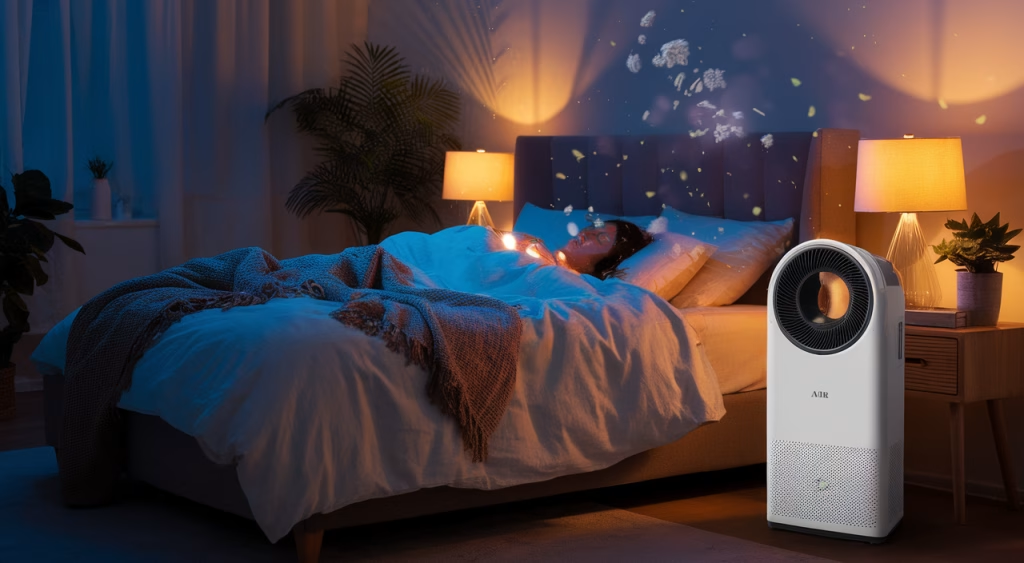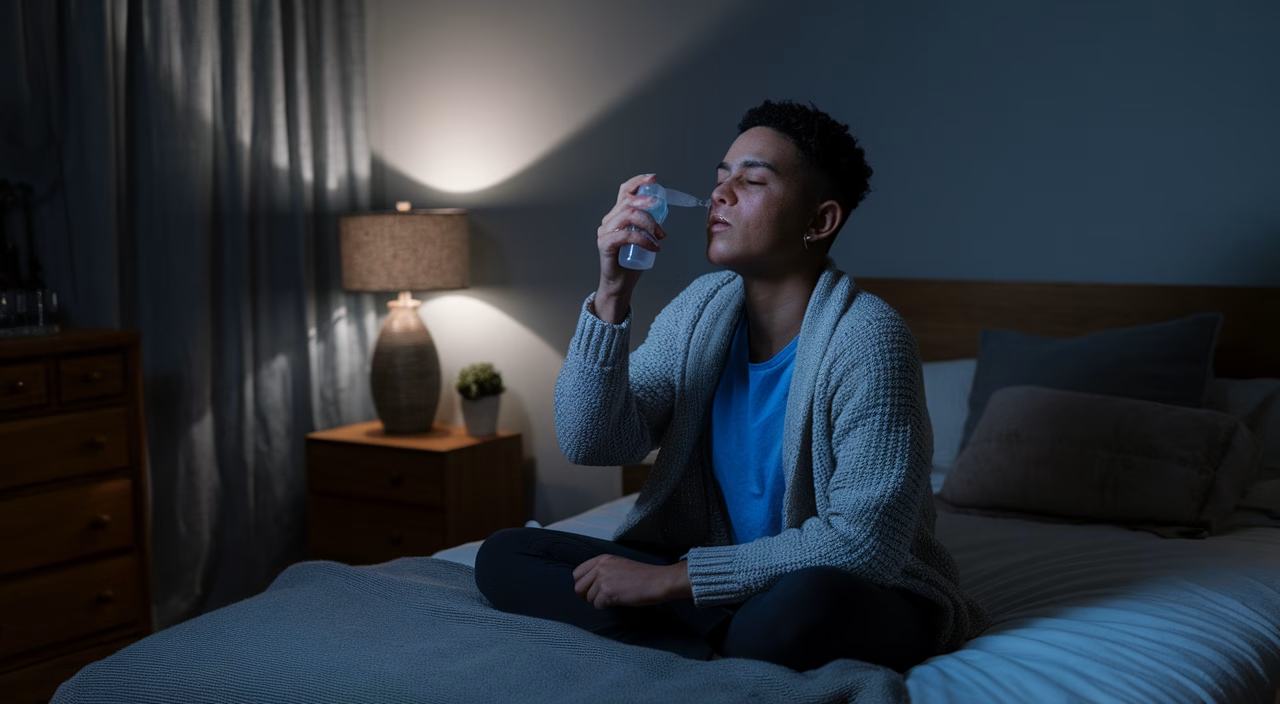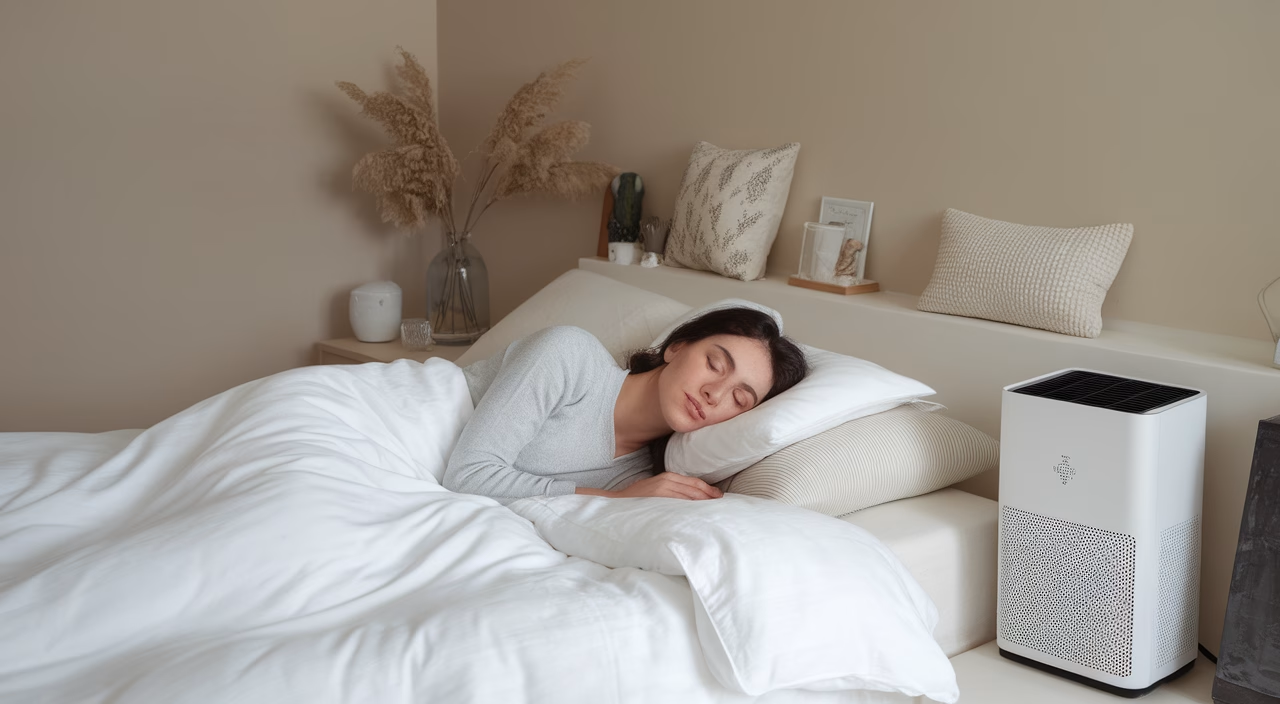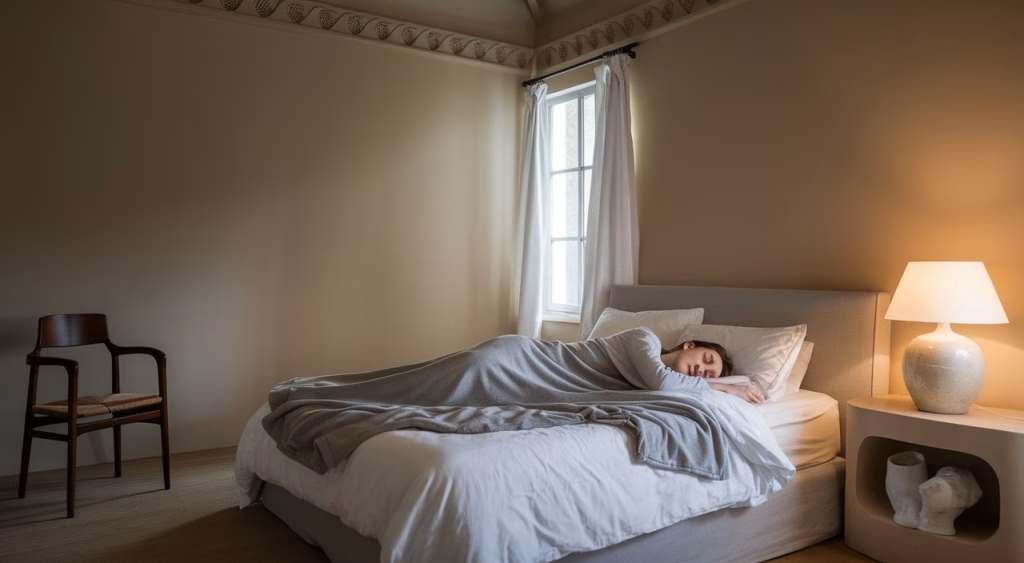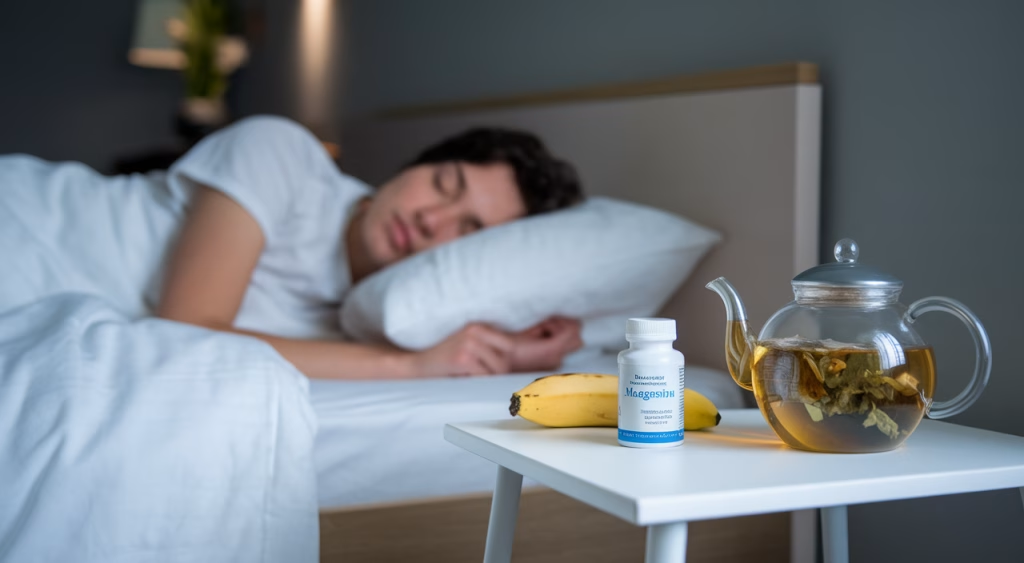How do allergies make snoring worse?
Allergies often cause nasal congestion and inflammation in the upper airways. This restricts smooth airflow during sleep, forcing you to breathe through your mouth—leading to or worsening snoring. In essence, allergies create a narrowed breathing path that makes the tissues in your throat more likely to vibrate as you sleep.
TL;DR: Quick Summary
- Allergies worsen snoring by creating nasal congestion and inflammation in airways.
- Allergic rhinitis often causes sneezing, postnasal drip, and runny nose—common snoring triggers.
- Natural remedies like saline irrigation and elevated sleep positions can help reduce symptoms.
- Medical treatments may include antihistamines, allergy shots, or prescription nasal sprays.
- Improved sleep hygiene, air purification, and humidity control can support long-term relief.
Understanding the Link Between Allergies and Snoring
Ever noticed your snoring seems louder or more intense during allergy season? That’s not your imagination. In fact, snoring and allergies are a frustrating pair that often go hand in hand—especially if you suffer from ongoing conditions like allergic rhinitis.
Snoring is a product of airway resistance. When your nasal passages or throat become partially blocked, airflow becomes turbulent. This turbulence causes soft tissues to vibrate—leading to that unmistakable snoring sound. Allergies make snoring worse by clogging your nose, inflaming sinuses, and increasing mucus production, which means you’re more likely to snore when allergies flare up.
Here’s the kicker: most people don’t realize that managing allergies can be a key to reducing chronic snoring. Instead of masking symptoms only at night, we want to root out causes and build consistent, proactive habits that clear up your airways—so you and your partner can finally sleep peacefully.
How Allergies Impact Nasal Congestion and Snoring
Let’s break this down anatomically. Allergic reactions begin when your immune system overreacts to normally harmless substances like pollen, pet dander, or dust mites. Your body releases histamines in defense, leading to swelling in nasal tissues and an uptick in mucus production.
This swelling constricts already narrow nasal passages, making nose-breathing harder. To compensate, your body often shifts to mouth-breathing during sleep—a primary trigger for snoring. The airflow rushes through your throat without the usual filtering and humidification done by your nose, causing your throat tissues to vibrate even more vigorously.
- Allergic Rhinitis: Swollen tissues inside the nose, frequent with seasonal allergens.
- Chronic Sinus Inflammation: Blocks normal drainage, increasing pressure and nasal congestion.
- Postnasal Drip: Excess mucus drains down the throat, triggering coughing or disrupted breathing.
Each of these conditions contributes to narrowed airways and greater resistance during respiration, which intensifies snoring significantly.
Common Symptoms of Allergic Rhinitis Leading to Snoring
Sometimes the allergy-snoring connection flies under the radar because symptoms are so engrained in daily life. Recognizing the telltale signs of allergic rhinitis is the first step toward minimizing its effects on sleep.
Here are the most common allergy symptoms that directly increase snoring risk:
- Nasal congestion: Blocked nostrils force you to breathe through your mouth during sleep.
- Runny nose: Excess mucous obstructs the upper airway and worsens breathing.
- Sneezing fits: Reflects continuous inflammation and irritation of nasal membranes.
- Itchy or watery eyes: Signals a systemic histamine reaction likely causing nasal swelling too.
- Fatigue or poor sleep: May be indirect signs that snoring is waking you (or your bed partner).
What does this mean for you? If you’re displaying a combination of these symptoms and snoring routinely, it’s highly likely that allergies make your snoring worse.
Effective Natural Remedies for Alleviating Snoring Caused by Allergies
Looking for non-pharmaceutical ways to ease allergy-driven snoring? Good news: nature has quite a few tools available. Here’s what consistently works for many patients in practice:
- Saline nasal irrigation: Rinses allergens and mucus out of nasal passages. Using a neti pot or saline spray nightly can dramatically reduce nasal congestion.
- Elevated sleeping position: Elevating the head by 4–6 inches helps fluid drain more effectively and reduces throat collapse.
- Steam inhalation: Humidifies and opens nasal passages before bed. Add essential oils like eucalyptus for added anti-inflammatory effect.
- Allergy-proofing your bedroom: Use HEPA filters, encase pillows in allergy-proof covers, and wash bedsheets weekly in hot water.
- Maintain hydration: Water helps thin mucus and keep tissues more resilient to vibration-induced sound.
These natural remedies aren’t instant magic bullets, but used consistently, they can create significant night-after-night improvements in how allergies affect your snoring.
Best Allergy Treatments for Reducing Snoring
If natural options don’t do the trick—or if you need stronger support—medical allergy treatments can provide the missing piece. Here’s a breakdown of several approaches we typically recommend based on the severity of your symptoms:
| Treatment | How It Helps Snoring | Best For |
|---|---|---|
| Antihistamines | Reduce histamine-triggered inflammation and swelling. | Mild to moderate nose-based allergies |
| Nasal corticosteroids | Powerfully reduce nasal swelling for improved airflow. | Moderate to severe allergic rhinitis |
| Decongestants (short-term) | Temporarily open airways but shouldn’t be long-term. | Short-term relief during allergy peaks |
| Allergy immunotherapy | Gradually builds your tolerance to allergens over time via shots or tablets. | Chronic allergies affecting daily life |
Always talk to a specialist before starting any new treatment. Some over-the-counter meds might cause drowsiness or interact with other medications. Personalization is key when addressing how allergies make snoring worse.
Cost Guide: Managing Allergies and Snoring
| Solution Type | Low-End | Mid-Range | High-End |
|---|---|---|---|
| Saline Rinse Kits | $5–10 | $15–25 | $30+ |
| Antihistamines (monthly) | $10 | $20 | $45+ |
| Air Purifiers | $50 | $150 | $500+ |
| Allergy Shots (per year) | N/A | $1,000 | $3,000+ |
Improving Sleep Quality with Allergies and Snoring
Now that you understand how allergies make snoring worse and the many remedies available, what’s next? It’s time to overhaul your sleep environment and bedtime routine in ways that support airway health and long-term relief.
- Set a cool, dry temperature between 65°F–70°F to minimize inflammation and nasal congestion.
- Use a HEPA air purifier to remove allergens like dust mites and pet dander.
- Avoid alcohol 3–4 hours before bedtime; it increases muscle relaxation and airway collapse.
- Limit exposure to triggers like pollen during peak hours. Shower at night to wash allergens off skin and hair.
- Consider seeing an ENT specialist for underlying structural issues like deviated septum or enlarged turbinates, which allergy swelling can worsen.
In practice, you’ll notice the best improvements when multiple strategies are used together. Think of it as stacking wins: small tweaks adding up to silent, uninterrupted sleep without the snoring that allergic rhinitis typically causes.
Final Thought
Allergies and snoring may seem like a double whammy, but once you understand how intertwined they are, managing them becomes much easier. Whether you opt for natural strategies to reduce nasal congestion, proven medications for your runny nose and sneezing, or a combination approach, remember: better breathing equals better sleep. And better sleep leads to a better, more energized life. You’ve got this.
Frequently Asked Questions
- Do allergies contribute to snoring?
Yes, allergies often cause nasal congestion, triggering mouth breathing and vibration of throat tissues, which leads to louder or more frequent snoring. - Can treating allergies help reduce snoring?
Absolutely. Reducing allergy symptoms can open your airways and promote nose breathing, a major step toward minimizing snoring. - Is snoring worse during allergy season?
Many people report more intense snoring during spring and fall when pollen counts are at their highest and allergic rhinitis symptoms peak. - Should I see a doctor about allergy-related snoring?
If lifestyle adjustments and OTC remedies don’t help, consulting an ENT or allergist can uncover deeper causes and offer customized treatment. - How can I allergy-proof my bedroom?
Use allergy-proof pillow and mattress covers, wash bedding in hot water weekly, vacuum with HEPA filters, and control humidity levels. - Is it possible to stop snoring caused by allergies entirely?
While total elimination isn’t always guaranteed, many people achieve dramatic improvement by controlling allergens and restoring clear nasal breathing. - Are nasal sprays effective for allergy snoring?
Yes, especially steroid-based sprays that directly reduce inflammation and swelling in the nose.

